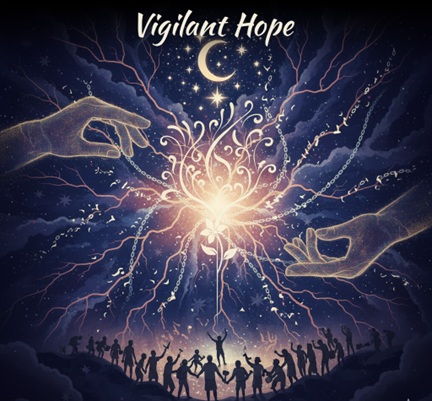Genesis 45:3-11, 15; Psalm 37:1-11, 39-40; Luke 6:27-38
Rev. Kenneth M. Locke, Interim Pastor
Orchard Park Presbyterian Church; Carmel, IN
February 23, 2025; 7th Sunday after Epiphany
This morning, I would like to spend a few minutes on forgiving. Forgiving. In our Gospel lesson, Jesus tells us to forgive – which may be the least controversial but also the hardest thing he is telling us to do.
We’ve all been hurt. That’s a given. We live in an imperfect world. In our Presbyterian anthropology we recognize we are all depraved. Depraved, sinful people hurt each other. No matter how much someone loves us, eventually they will hurt us. Anger is a natural response.
Anger can be a good thing, certainly. It’s a natural emotion. It helps us process what’s happened to us. And sometimes, our anger feels good. Nursing our anger feels good. We water it, we nurture it, we help our anger grow and blossom and spread. It feels good, but is it a good idea?
Sometimes, delaying forgiveness is the right thing to do. If we forgive too soon we’re not doing justice to our pain. Jumping straight from pain to forgiveness doesn’t allow for processing our pain, it doesn’t allow the perpetrator to experience our pain and realize their sin. But how long is long enough? And how long is too long?
Anger is normal and can be healthy, but forgiving is also important. Very important. Letting go of our anger, no matter how justified, matters. We need to do it.
Emotion is like money in the bank. We only have so much of it, so we need to spend it wisely. The more emotion we spend on being angry, the less emotion we have for loving, joy, caring. If we don’t find some way of resolving our anger, some way of letting it go, the less we’ll be able to love those closest to us and show kindness
to those we care about. From a mental health perspective, forgiveness matters.
From a biblical perspective, forgiveness matters, too. Someone has to stop the cycle of anger, hurt, and pain. Joseph does that so well. He could be angry. Perpetuate the feud. Pass it on to the next generation. But he doesn’t. He stops the anger right here, right now. ‘This is God’s doing. I’m not seeking revenge.’ Joseph forgives, restoring his relationship with his brothers. He stops the feud, keeping it from spilling over to the next generation.
In our Psalm lesson, we’re told over and over again – let it go. The evil won’t win. God will see to them. We should spend our energy on being the most godlike person we can be.
And finally, in our Gospel lesson, Jesus reminds us God is with us. Don’t worry about the evil ones. Aspire to a higher righteousness. Love, lend, be merciful. And forgive.
But how? How do we do that? How do we forgive when our wound is raw? How do we forgive when our soul is still bleeding from the knife in our back? How do we forgive when our anger and humiliation are driving us into the ground? We know we need to do something. We know we can’t live healthy relationships when we’re consumed with hatred. But how do we let it go? How do we forgive?
Let me share two things that have helped me. The first is spiritual. The second is psychological. From personal experience I can testify they both work.
First – pray for the other person. Pray for the one who hurt us. Don’t pray they’ll get their comeuppance. Revenge is God’s business. Pray for their wellbeing. When I’m feeling anger at someone, here’s how I like to pray. “Holy God, today I pray for so-and-so. I pray that today, so-and-so will be well and happy. I pray that today, so-and-so will be free from all pain and suffering.” I can’t tell you why it works, but I can tell you it does work. Even when I don’t feel like forgiving, if I do my best to pray sincerely, over time it will help. Over time, it will make a difference.
Second, do something called ‘cycles.’ I was introduced to this practice about 15 years ago and I will tell you it makes a difference. Let me give you an example. Something simple. Simple example.
Let’s say it’s Monday morning. I’m trying to get to work. Elizabeth is trying to tell me something. We keep getting in each other’s way. Before we know it, we’ve crossed swords and ‘had words.’ I stomp off to work: angry, hurt, frustrated.
And I can’t let it go. I brood in the car all the way to work. It keeps interrupting my thoughts. I find myself having conversations in my head of how the morning should have gone. This is taking way too much time, energy and emotion. I need to do something. I need to move past this. Time for cycles.
The first step in the cycle is Anger. “I feel angry that …” You have to feel the anger and you have to articulate it. I feel angry Elizabeth didn’t listen to me and kept getting in my way while I was trying to get out the door. Sit with it. Feel the anger until you feel it dissolving. It may not happen the first time. You may have to go back several times. But sit with it. Feel it. Until you feel it shifting away.
The next step in the cycle is Sadness. “I feel sad that ….” Again, you have to feel the sadness, and you have to articulate it. I feel sad our pleasant weekend ended with a fight on Monday morning. I feel sad I’m using up so much time and emotion on this issue. Sit with it. Feel it. Until you begin to feel it lessen.
Third comes Fear. “I feel afraid that ….” Feel it and articulate it. When I left Elizabeth, she was angry. I feel afraid she’ll still be angry when I get home. I feel afraid these arguments will get worse. I feel afraid we’re spiraling into a deep, deep hole. Sit with it. Feel it. Until it begins to fade.
Fourth is Guilt. “I feel guilty that ….” Maybe you have nothing to be guilty for. Maybe you’re as pure as the new-driven snow. But really? Really? I feel guilty I didn’t stop. I’m a grown man. Why didn’t I stop and say, “I’m sorry. I didn’t hear you. What did you say?” I feel guilty I didn’t stop and take an extra 10 minutes. I feel guilty I was thinking about the meeting I had
coming up rather than listening to my wife. Feel it until it begins diminishing.
Finally, there’s the positive affirmation. What have I learned from this? How am I going to do it differently next time? Yes, this was difficult but we’ll weather it. Tomorrow morning, I’ll make a point of asking about her day before I start getting frantic.
Does it work the first time? Not always. Back when I was running marathons I would work through these cycles for miles. But it helps. It helps. It makes it easier to restore the relationship, which is what forgiveness is all about.
In Luke’s gospel, Jesus is a radical. Forgive! It’s not a request. It’s not a good idea. It’s a command. Forgive!
But maybe we just can’t. We want to. We want less anger in our lives. And we’ve tried but we just can’t.
But we can give anger less power in our lives. We can, at least somewhat, restore the relationship. Which is what forgiveness is all about.
God has forgiven us. With God’s help, may we forgive others. Amen.



